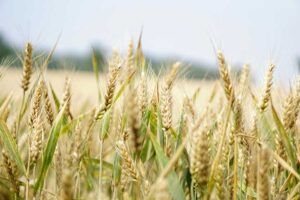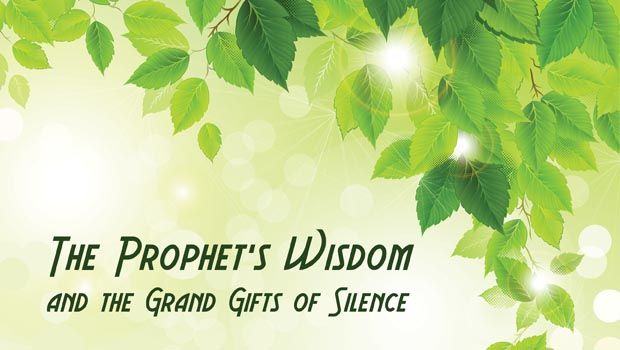Some societies invest billions of dollars in the pursuit of efficiency and instantaneous results. University students, for example, often search for productivity hacks and study tips to help them achieve their desired outcomes more quickly. Many companies today are exploring how artificial intelligence can be utilized to streamline processes and achieve objectives more efficiently.
An interesting concept in Islam is that of barakah. Consider a half-full water bottle. If that water is imbued with barakah, a divine blessing, it will quench your thirst with less. Having more water in the empirical sense does not necessarily mean having more barakah. Barakah refers to growth and increase, a blessing enjoyed by some of Allah’s servants. Our Prophet Muhammad (s) prayed for barakah for various individuals and occasions, including for Anas ibn Malik (r). Prophet Muhammad (s)ﷺ prayed, “O Allah, increase his wealth and offspring, and bless what You have given him” (Bukhari).
Allah SWT answered the Prophet’s (s) supplications, making Anas one of the wealthiest among the Ansar, blessed with abundance, and over a hundred of his children and grandchildren. Allah also blessed his lifespan, allowing him to live over a century.
Barakah is generally understood as a divine gift from Allah SWT, the giver of all good things and the source of all barakah. Barakah can manifest at any point in one’s life, enhancing even the smallest of blessings and greatly benefiting larger ones. The ultimate purpose of barakah is to use these blessings in obedience to Allah SWT, such as dedicating one’s wealth or time to acts of worship.
What actions increase barakah in one’s life?
- Sincere intentions
Everything you do starts from within. In the famous hadith, the Prophet(s)ﷺ mentioned: “Actions are based on intentions…” (Bukhari). Ikhlaas – sincere intentions in one’s devotion to Allah – can move mountains. It can change lives. It can revive the ummah. It can be a source of protection. Sincere and intentional devotion can be a means of ripple effects in continuous charity long after one has left this world. It can be the reason you have more blessings in your time and wealth than the person next to you who has the same 24 hours and same bank balance.
Renew your intention daily and reflect on it before you sleep, when you wake up, and before you engage in acts of worship; and keep purifying your intention in your thoughts and attitudes, in your speech, and in your actions, both small and large.
- Ties of kinship
The Prophet (s) said: “Whoever would like his rizq (provision) to be increased and his life to be extended, should uphold the ties of kinship” (Bukhari). He also said, “Nothing can ward off the divine decree except du‘a (supplication) and nothing can increase lifespan except honoring one’s parents” (Tirmidhi).
- Connect to the Qur’an
It is not surprising that the Qur’an is one of the greatest sources of barakah for the believers, as Allah says about it: “a blessed Book which We have revealed to you so that they may contemplate its verses, and people of reason may be mindful” (Qur’an 38:29).
Although the entire Qur’an is blessed and a source of barakah, the Prophet (s) specified in one hadith, “recite Surat al-Baqarah, for doing so leads to barakah” (Bukhari). And abandoning it leads to regret and loss. And it cannot be overcome by al-batalah, which can refer to two things: 1) it cannot be penetrated by the sorcerers, so it’s a form of protection, and 2) it cannot be attained by those who are lazy and slow to acts of worship.
If one reads Surat al-Baqarah, it becomes a source of blessings in one’s time. Of course, the test for the servant is knowing that Surat al-Baqarah is the lengthiest surah in the Qur’an, and yet it is the one singled out in the hadith as being a source of blessings. Many times, people memorize or recite al-Baqarah without realizing that it was a cause of great blessings in their lives, but they had not associated those blessings with the surah.
- Seek barakah in time
Barakah in time means having the same 24 hours in a day as everyone else, but being able to get more out of it. In era of productivity hacks, shortcuts, and instant gratification, the believer seeks barakah in time in order to get more out of life, even if one’s lifespan itself is shorter than average.
For students, barakah in time is the ability to get more studying done with less time; for professionals, it is the ability to fulfill one’s work responsibilities while having the time to excel and do more. For parents, it is the experience of raising one’s children with more benefit in their overall development. Some scholars had so much barakah in their time, it’s as though they finished in a day what it would take others a week to accomplish.
One way to seek more barakah in time is to sincerely ask Allah for it, consistently, and to use one’s time wisely. A second way to seek barakah in time is to specifically utilize the morning time.
The Prophet (s) made du’a over 1400 years ago, “O Allah bless my ummah in its morning time” (Tirmidhi). The effects of this du’a are well known to all who take advantage of the early hours of the morning.
When people neglect time, they tend to regret it in later years. Many people look back at their high school and college years wishing to have done greater good with their time. The Prophet (s) informed us in the famous hadith, “There are two blessings many people waste: good health and free time” (Bukhari). In other words, many people waste their good health until they’re ill and then they regret not doing more with it, and the same with time. Life only increases in responsibilities and commitments for the productive believer, and there’s no concept of “true boredom” for the Muslim who values every precious minute of this short life.
Some people were given only 30 years in this world, but were able to accomplish more in quality than people who lived decades longer. The believers are those who do the best with their situation, living each day as though it’s the last, and not procrastinating goodness for a future that may not arrive.
- Du’a and dhikr
Du’a is the essence of worship, and we should spend time every single day to call upon Allah with sincere, humble hearts, persistently asking for the best of this life and the next. There are many examples of what to ask for in terms of barakah, such as in one’s time, health, and wealth.
Additionally, an example of barakah is starting many actions with “bismillah” (in the name of Allah), sincerely hoping for reward, blessings in the action, and protection. Another example of a daily practice is the du’a famously used in the witr prayer, but can be employed any time of the day:
“O Allah, guide me with those whom You have guided, and strengthen me with those whom You have given strength. Take me to Your care with those whom You have taken to Your care. Bless me for what You have given me. Protect me from the evil You have ordained. Surely, You command and are not commanded, and none whom You have committed to Your care shall be humiliated and none whom You have taken as an enemy shall taste glory. You are Blessed, Our Lord, and Exalted” (Abu Dawud).
Du’a for barakah is also frequently used in Islam when it comes to wanting blessings for other people, such as when someone has a newborn and you pray for blessings in their child, or blessings for those who get married, as well as those who purchase new items (e.g., houses, cars, devices).
- Honesty in trading and income
 Sincerity and morality when conducting business is a way to increase barakah in one’s income. The Prophet (s) said, “The buyer and the seller have the option of cancelling or confirming the bargain, unless they part from each other, and if they spoke the truth and made clear the defects of the goods, then they would be blessed in their bargain, and if they told lies and hid some facts, their bargain would be deprived of Allah’s blessings” (Bukhari).
Sincerity and morality when conducting business is a way to increase barakah in one’s income. The Prophet (s) said, “The buyer and the seller have the option of cancelling or confirming the bargain, unless they part from each other, and if they spoke the truth and made clear the defects of the goods, then they would be blessed in their bargain, and if they told lies and hid some facts, their bargain would be deprived of Allah’s blessings” (Bukhari).
- Charity
Some people say they feel like they have no blessings in their wealth as money seems to slip through their fingers. Some feel like it’s due to their lack of giving charity, while justifying spending on countless forms of entertainment and unnecessary leisure activity.
The Messenger of Allah (s) said, “Allah said, ‘O son of Adam! Spend, and I shall spend on you’” (Bukhari).With charity, one’s wealth has increased barakah and goes much further in terms of benefit. This barakah oftentimes spreads to one’s home and material wealth as well.
- Food
 “The Messenger of Allah (s) said: “Eat together and do not eat separately, for the blessing is in being together” (Ibn Majah). This is a simple act of worship that can be implemented easily. We are living in an era when individualism and aloneness has increased, even in eating.
“The Messenger of Allah (s) said: “Eat together and do not eat separately, for the blessing is in being together” (Ibn Majah). This is a simple act of worship that can be implemented easily. We are living in an era when individualism and aloneness has increased, even in eating.
On another note, related to food and barakah, the Prophet (s) said: “Take a meal before dawn [i.e., suhoor], for there is a blessing in taking a meal at that time” (Bukhari). Later at sunset, upon breaking fast, he commanded, “When one of you breaks his fast, then let him do so with dried dates, for they are blessed. Whoever does not find dates, then water, for it is purifying” (Tirmidhi).
Finally, one should never waste any food, even if it’s a small amount left on one’s plate, utensils, or hands. Jabir reported that the Messenger of Allah (s) commanded the licking of fingers and the dish, saying: “You do not know in what portion the blessing lies” (Muslim).
- Consistent repentance and seeking forgiveness
Sinfulness, in the Islamic worldview, might be the reason a believer is prevented from a provision, relief from hardship, or divine blessings. Allah says, “…Seek your Lord’s forgiveness; He is truly Most Forgiving. He will shower you with abundant rain, supply you with wealth and children, and give you gardens as well as rivers” (Qur’an 71:10-12).
- Gratitude
Allah says, “…If you are grateful, I will increase you…” (Qur’an 14:7).
While “increase” generally refers to an increase in faith and righteous deeds, there’s also the increase of provisions because the believer uses the existing wealth or resource with true gratitude. Gratitude, thus, is to use the blessings of Allah in a manner that is pleasing to Him. To be grateful with health is to use one’s energy to do good, and to be grateful with one’s time is to use it for Allah’s sake.
While the list above is not exhaustive, it is a helpful starting point for all of us to review our daily practices and pursuit of divine blessings. May Allah bless us in all that has been given to us.





